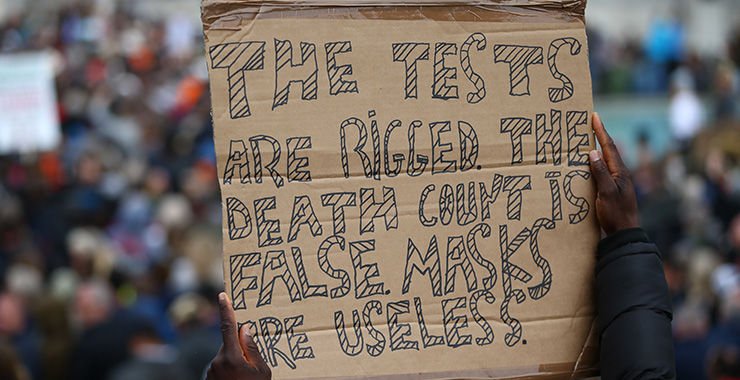
American Psychological Association
According to its About page, the American Psycological Association (APA) "APA is the leading scientific and professional organization representing psychology in the United States, with more than 121,000 researchers, educators, clinicians, consultants and students as its members." It describes its mission as "to promote the advancement, communication, and application of psychological science and knowledge to benefit society and improve lives."
Misinformation on COVID-19 is so pervasive that even some patients dying from the disease still say it’s a hoax. In March 2020, nearly 30% of U.S. adults believed the Chinese government created the coronavirus as a bioweapon (Social Science & Medicine, Vol. 263, 2020) and in June, a quarter believed the outbreak was intentionally planned by people in power (Pew Research Center, 2020).
Such falsehoods, which research shows have influenced attitudes and behaviors around protective measures such as mask-wearing, are an ongoing hurdle as countries around the world struggle to get the virus under control.
Psychological studies of both misinformation (also called fake news), which refers to any claims or depictions that are inaccurate, and disinformation, a subset of misinformation intended to mislead, are helping expose the harmful impact of fake news—and offering potential remedies. But psychologists who study fake news warn that it’s an uphill battle, one that will ultimately require a global cooperative effort among researchers, governments, and social media platforms.











